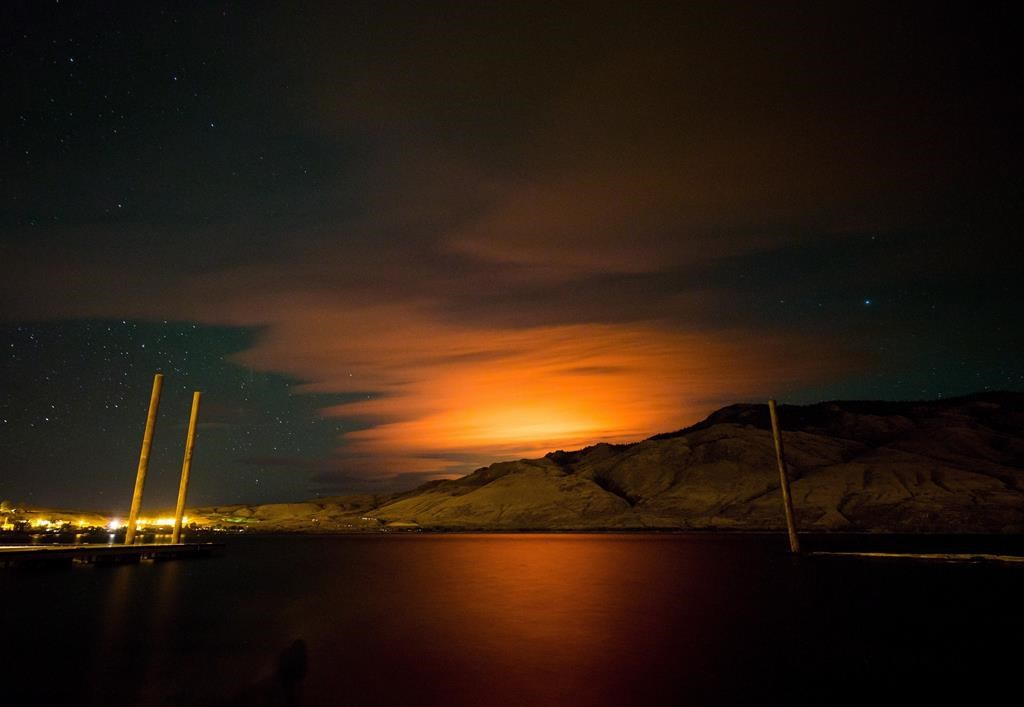Support strong Canadian climate journalism for 2025
A university located in the heart of one of British Columbia's most volatile forest fire regions will lead new research in wildfire prediction, prevention and response.
Thompson Rivers University in Kamloops was chosen for the research that will improve abilities to forecast, prevent and respond to wildfire emergencies, Forest Minister Doug Donaldson said Thursday.
The B.C. government will contribute $5 million to fund the B.C. Research Chair in Predictive Services, Emergency Management and Fire Science, he said.
The chair of the new research department was not named at a news conference Thursday.
Donaldson said the Kamloops campus is located near Emergency Management BC and BC Wildfire Service operational centres and is supported by high-speed fibre optic connections and key transportation routes.
He said the research will help in providing more information about the changing nature of wildfires and improved approaches to battling the blazes.
"Research has a big role to play, especially during these times where fire behaviour has changed drastically," Donaldson said. "This is what the experts tell me that with the climate emergency we are seeing bigger fires. The fuel load is different. The dry out conditions are different as the weather patterns change."
B.C.'s Interior was the scene of record-breaking wildfires in 2017 and 2018, forcing community evacuations, destroying homes, forests and ranges and costing the province more than $1.2 billion.
"All that modelling and predictive research is extremely important to us," said Donaldson.
University president Brett Fairburn said the endowment allows the university to conduct leading research in wildfire modelling and to explore the relationship between climate change and the impact on the risk of wildfires.
This report by The Canadian Press was first published on July 30, 2020.





Comments